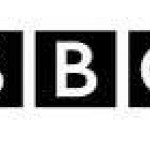- 업종: Broadcasting & receiving
- Number of terms: 5074
- Number of blossaries: 1
- Company Profile:
The largest broadcasting organisation in the world.
Grey water is waste water from baths, showers, washing machines, dishwashers and so on - in other words, water that has been used in the home but does not contain bodily waste - which can be reused for lawn and garden irrigation, say, or for flushing toilets.
Industry:Natural environment
The term used for those who support a woman's right to choose abortion if she so wishes.
Supporters of the pro-choice agenda do not necessarily support abortion itself, only the position that women are entitled to make the decision themselves.
Industry:Government
A convention is described as brokered if a candidate for a party's presidential nomination does not obtain the majority of the votes during the primary and caucus process, or during the first round of voting at the party convention.
The nomination is then decided through further ballots.
Industry:Government
The procedure to place a time limit on consideration of a bill in the US Senate.
Under a cloture motion, the Senate can limit consideration of a pending matter to 30 additional hours. To be carried out, it requires at least 60 out of 100 votes by members of the Senate.
The use of a cloture thus prevents a filibuster - an attempt to infinitely extend debate upon a proposal by making a never-ending speech.
Industry:Government
The vice-president's primary duty is to succeed to the presidency in the event of the resignation, removal or death of the incumbent president.
The vice-president's only other constitutional responsibility is to preside over the US Senate and to use his vote as the decider in the event of a tie. This is only overridden when the senate is conducting an impeachment trial against the president.
In recent years, vice-presidents have taken on an increasingly prominent role managing a range of high-profile foreign and domestic policy programmes.
Industry:Government
The House Speaker is the leader of the majority party in the House of Representatives (not to be confused with the House Majority Leader).
He or she has a dual role as both the leader of his or her party in the House, and as the presiding officer in the chamber, with responsibility for controlling debate and setting the legislative agenda.
Under the terms of the Presidential Succession Act of 1947, the speaker is the second in line to the presidency after the Vice-President.
Industry:Government
Refers to a critical date in the campaign calendar - usually in early March - when a large number of states hold primary elections.
The hope was that by holding their votes on the same day, states would increase their influence and downplay the importance of other primaries.
The idea that Super Tuesday would be the decisive event in the primary season was disproved in the 2008 election cycle, when Senator Hillary Clinton failed to break through despite victories in some big states on that date.
Industry:Government
The first 10 amendments of the US constitution establishing the fundamental rights of individual citizens.
The amendments limit the powers of federal and state governments. Acts of Congress or laws ruled to be in conflict with these rights may be declared void by the US Supreme Court.
Industry:Government
The 1976 Supreme Court decision allowing unlimited spending by individuals or groups who are not standing for election themselves but who wish to support particular candidates.
The provision does not apply to contributions made by corporations or unions. It rules that in any donor situation there must be no consultation with any candidate.
The court's decision overruled two major parts of the 1974 Federal Election Campaign Act which imposed mandatory spending limits on all federal races, and limited independent spending on behalf of federal candidates.
Industry:Government
A 2010 Supreme Court ruling that overturned aspects of the McCain-Feingold Act on the use of corporate and union money in elections.
In a controversial 5-4 decision, the Supreme Court ruled that corporations should be viewed the same way as individuals in terms of their First Amendment right to free speech.
Using that rationale, it overturned a ban on corporate and union spending on advertisements that mention a candidate's name within 60 or 30 days of an election (depending on whether it is a general or primary election).
Now, unions and corporations will be able to directly advertise right up until election day, as long as they haven't co-ordinated their advertisements with a candidate's campaign.
The ruling maintained the McCain-Feingold Act's ban on corporations and unions directly donating to candidates and political parties, as well as the requirement for ads to disclose their funding sources.
Industry:Government
